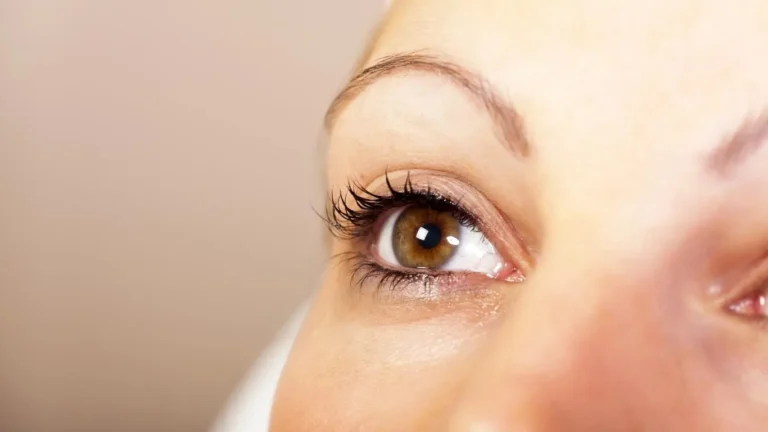The Link Between Rheumatoid Arthritis and Thyroid Problems: What You Should Know
Ever wonder if your rheumatoid arthritis (RA) might be connected to thyroid issues? You’re not alone. It turns out these two conditions might have more in common than you think. Let’s dive into how RA and thyroid problems could be related and what that means for your health.
If you have rheumatoid arthritis (RA), you probably already know that it’s an autoimmune condition where your body’s immune system attacks its own joints, causing pain, stiffness, and swelling. But what if I told you that RA might be linked to thyroid issues as well? Whether it’s hypothyroidism (an underactive thyroid) or hyperthyroidism (an overactive thyroid), many people with RA also experience thyroid problems. So, what’s going on here? Is there a deeper connection? Let’s break it down and look at the science, real-life connections, and what you can do about it.

Why Does RA and Thyroid Problems Have a Connection?
You might be wondering: how could two seemingly different conditions have any relation to each other? Well, here’s the thing—both RA and thyroid problems are autoimmune diseases. What does that mean? It means that your immune system, which is supposed to protect your body, starts attacking healthy cells by mistake.
In the case of RA, your immune system targets your joints, leading to inflammation and pain. With thyroid problems, your immune system might either attack your thyroid gland (leading to hypothyroidism) or overstimulate it (leading to hyperthyroidism). This shared autoimmune connection is a big reason why people with RA are more likely to develop thyroid issues and vice versa.
Autoimmune diseases like RA, lupus, Hashimoto’s thyroiditis (a form of hypothyroidism), and Graves’ disease (a form of hyperthyroidism) share genetic and environmental risk factors. This means that if you already have one autoimmune disease, your chances of developing another one increase. It’s kind of like your body’s immune system is overactive and confused, attacking more than just the intended target.

The Specific Link Between Rheumatoid Arthritis and Thyroid Problems
The connection between RA and thyroid issues isn’t always clear-cut, but there are some common patterns that doctors notice. For example, people with RA are more likely to develop hypothyroidism, particularly if they also have Hashimoto’s thyroiditis (an autoimmune thyroid disease). On the other hand, some people with RA might experience symptoms of hyperthyroidism, though this is less common.
The inflammation that RA causes in your body can also affect your thyroid function. When your immune system is in overdrive, it can sometimes lead to problems with your thyroid gland. Additionally, certain medications used to treat RA can impact your thyroid function as well. Nonsteroidal anti-inflammatory drugs (NSAIDs), which are often prescribed for RA, might not directly affect the thyroid, but other RA medications, like methotrexate, can have an impact.
Symptoms to Watch For: Is It RA or Thyroid Problems?
When you’re already dealing with the pain and fatigue of RA, it can be tough to tell whether you’re experiencing new symptoms related to thyroid issues or if it’s just another part of your RA. Here’s a breakdown of symptoms for both conditions:
Rheumatoid Arthritis Symptoms:
- Joint pain, stiffness, and swelling (usually in the hands, wrists, and knees)
- Fatigue
- Loss of appetite
- Low-grade fever
Hypothyroidism Symptoms (Underactive Thyroid):
- Fatigue
- Weight gain
- Dry skin
- Sensitivity to cold
- Depression
- Constipation
Hyperthyroidism Symptoms (Overactive Thyroid):
- Unexplained weight loss
- Increased heart rate or palpitations
- Anxiety or nervousness
- Tremors (shaking hands)
- Sweating
As you can see, some of the symptoms overlap—like fatigue—so it’s easy to miss the signs of a thyroid problem when you’re already dealing with RA. That’s why it’s important to check in with your doctor if you notice any new symptoms or changes in your condition.
How Is the Link Between RA and Thyroid Problems Diagnosed?
If your doctor suspects a connection between your RA and thyroid issues, they’ll likely recommend a few tests. These could include:
- Blood tests: Measuring levels of thyroid hormones (TSH, T3, T4) can help diagnose hypothyroidism or hyperthyroidism. In RA, doctors might also test for specific antibodies like rheumatoid factor (RF) and anti-citrullinated protein antibodies (ACPA).
- Ultrasound: An ultrasound of your thyroid can help identify any abnormalities like nodules or inflammation.
- Physical exam: Your doctor might check for signs of RA or thyroid problems, like swollen joints or changes in your skin or hair.

Managing Both RA and Thyroid Issues
If you’re dealing with both RA and thyroid problems, the good news is that they’re both treatable conditions. However, managing both can be a bit of a balancing act. Here are a few things you can do to keep both under control:
- Regular check-ups: Make sure to have regular follow-ups with your healthcare provider to monitor both your RA and thyroid health. This might include blood tests to track your thyroid function and joint health.
- Medications: For RA, treatments like methotrexate, biologics, or corticosteroids can help manage inflammation. For thyroid problems, you may need hormone replacement therapy (for hypothyroidism) or medications to control thyroid hormone levels (for hyperthyroidism).
- Lifestyle adjustments: Exercise, a balanced diet, and stress management are key to helping manage both conditions. In particular, focusing on an anti-inflammatory diet can help reduce symptoms of RA while supporting overall thyroid health.
- Watch for medication interactions: Be aware that some RA medications might interact with thyroid treatments. Make sure to tell your doctor about all the medications you’re taking.

Conclusion
So, if you have RA and are noticing changes in your health, like fatigue, weight changes, or changes in your skin or hair, it might be worth getting your thyroid checked. The connection between RA and thyroid problems is real, and being aware of the symptoms and treatments can help you manage both conditions more effectively. Always check in with your doctor if you have concerns about either condition, and they can help guide you through the diagnosis and treatment options.
Appendices:
FAQs
- Can having RA increase my risk of thyroid problems?
Yes, autoimmune diseases like RA can increase your risk of developing thyroid problems, as both conditions share common risk factors. - What symptoms should I look for if I think I have thyroid issues along with RA?
Symptoms like unexplained weight changes, fatigue, hair loss, or changes in your skin can be signs of thyroid problems. If you notice these along with your RA symptoms, it’s worth getting checked out. - Can RA medications affect my thyroid function?
Some RA treatments, like methotrexate, can have an impact on thyroid function. Always discuss your medications with your doctor. - How is thyroid disease treated in people with RA?
Thyroid disease is typically treated with medication—hormone replacement therapy for hypothyroidism and medications to control thyroid hormones for hyperthyroidism. - Do I need to see a specialist for both RA and thyroid problems?
It’s often helpful to work with both a rheumatologist (for RA) and an endocrinologist (for thyroid issues) to manage both conditions effectively.
References
- American College of Rheumatology. (2023). Rheumatoid Arthritis and Related Conditions. Link
- National Institute of Arthritis and Musculoskeletal and Skin Diseases. (2024). Rheumatoid Arthritis Overview. Link
- American Thyroid Association. (2024). Thyroid Disease and Autoimmunity. Link
Disclaimer
The information provided in this article is for educational purposes only and does not substitute for professional medical advice. Always consult with your healthcare provider for any concerns related to rheumatoid arthritis, thyroid health, or any other medical conditions.

Tarra Nugroho is a dedicated Nurse Practitioner with a strong foundation in family and preventive care. She brings both compassion and clinical expertise to her practice, focusing on patient-centered care and health education. As a contributor to Healthusias.com, Tarra translates medical knowledge into clear, empowering articles on topics like women’s health, chronic disease management, and lifestyle medicine. Her mission is simple: help people feel seen, heard, and informed—both in the clinic and through the content she creates. When she’s not caring for patients, Tarra enjoys weekend hikes, plant-based cooking, and curling up with a good health podcast.







